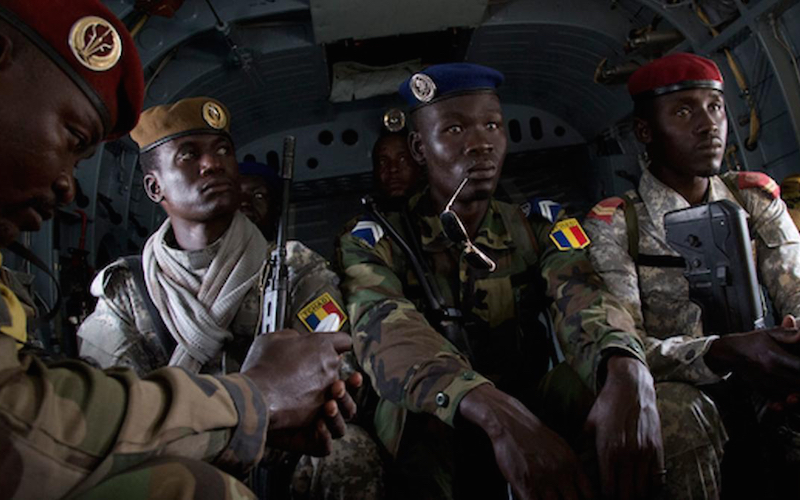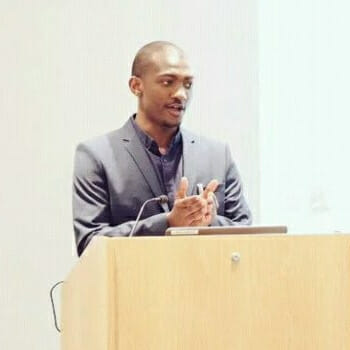
Is this the End of Boko Haram?
During the last few days of President Jonathan’s term there was robust military action supported by a multi-national task force waged against Boko Haram. This strengthened President Buhari as he assumed office by relocating the military central command center to Maiduguri where the group is predominantly located.
Presidents of neighboring countries and the G7 countries assured support and the US sanctions on the sale of arms to Nigeria which were enacted due to gross human rights violations by the Nigerian military are to be lifted. These actions were followed by some Boko Haram captured towns being recaptured by security forces. About 10.7 million mobile unregistered lines have been blocked in a renewed effort to curb the terrorists’ use of cyberspace, the terrorist food and fuel supplies have been diminished and many terrorists have been captured. On August 15th President Buhari mandated the security chiefs to end the insurgency in 3 months. In spite of all these efforts occasional attacks by the terrorists still occur. Because President Buhari has more international support, has a military background as a general and has knowledge of Northern Nigeria where he is from, the war against the terrorists will be won.
While all these efforts and military might are important in reducing violence in Boko Haram affected states, the fight against Boko Haram should not be centered on the excess use of force.
It is pertinent to view the conflict from Joseph Nye’s perspective: “A cruel dictator can lock or execute a dissident, but that may not prove his power if the dissenter was really seeking martyrdom.” Boko Haram became ultra-violent immediately after the Nigerian government proscribed the group and declared a state of emergency in the Borno, Adamawa and Yobe states.
To dissuade Boko Haram’s from choosing violence requires an understanding and resolution of its worldview and perception of the Nigerian state. Whether its ideology or perception of Nigeria is rational or not, without de-radicalizing Boko Haram, Nigeria should expect a resurgence of the group in the future whether using the same or a different name. At a point in time the US thought it had finished with the Taliban in Afghanistan, but the Taliban fled and resurfaced in Pakistan and allegedly infiltrated the Pakistani Inter Services Intelligence (ISI).
Whether Boko Haram is motivated by a lack of social justice or is a reflection of the current wave of the global Jihadist movement, we cannot undermine the role of radical Islam. In recent years Africa has been increasingly threatened by radical Islamic groups. Islamic radicalism has spread rapidly as groups like Alshabab, Boko Haram and Ansar dine engage in campaigns of terror. The motivations and growth of all these African grown ultra-violent Islamist groups are connected to international terrorist groups such as Alqaeda and IS (Islamic States). Obviously, West and East Africa are mostly affected by this radical ideology due to their geographical proximity to the Middle-East and North Africa (MENA) where more radical groups exist.
Before the Boko Haram emergence, Islam in Nigeria witnessed several internal disputes emanating from theological differences: Sheikhs Abubakar Gumi and Nasiru Kabara, Izala and Sufi tensions and the Shiite crises. These debates were concerned with how Islam should be evangelised (Da’awah), whether the socio-economic and political life of Muslims should be determined by the state (dawlah) or religion (din), and whether a Muslim should conform to Western education (boko) and secularity. It will be fair to say that the interpretation of these strands which produced violent groups such as Maitatsine and Boko Haram were motivated either by the justification of existentiality or by the framing of the poor socio-economic and political conditions inherent within Northern Nigeria.
In spite of these disputes Islam in Nigeria had uniting factors. In 2000, Muslims united over the call for the implementation of more Sharia law to Islamic adherents although a few agitated for the extreme. Boko Haram indiscriminately targets people of all faiths although Muslims are the major victims and this is accompanied by the stereotype that all Muslims are terrorists. Accordingly, these situations create some unity within Nigerian Muslims. The Izala (arguably the most popular sect) and a faction of Jos and Kaduna states are now united. Many Muslims are united in condemning the ideology and the violent strategy of Boko Haram and Islam-phobia emanating from radical Islamism. Revered Islamic scholars such as Sheikhs Jafar and Albani lost their lives while preaching against the sect’s ideology.
The damage caused by the terrorists’ activities should not only attract condemnation from Nigerian Muslims, but practical efforts are needed to erode the proliferation and activities of radical Islamic preachers and those who are unable to reconcile Islam with secular society. Generally, Islam has a formal settings like schools, Madarasas) where students (Almajirai) are formally educated by Islamic scholars, while the same scholars have followers who subscribe to their style of preaching. In the past Islamic clerics or scholars were strictly licensed and monitored by their various sects to preach with moderation. Today only a few states in Nigeria such as Niger, Kastina and, Sokoto are able to effectively license Islamic preachers. It is necessary that this be replicated nationwide.
Since the Nigerian Supreme Council for Islamic Affairs (NSCIA) and Jama’atu Nasril Islam (JNI) as the most powerful bodies for promoting and coordinating Islamic evangelism, enjoy the legitimacy from the majority of Muslims, the Nigerian government can use the existing structure to drastically reduce the influence of radicalism. Nigeria does not experience lone-wolf terror attacks rather it experiences group violence. Therefore one cannot overlook the role of preachers in the radicalization process of young minds who are the major foot soldiers of violent Islamist groups. More so, the licensing of preaching should be applicable to all religions given the shocking call for violence prior to the 2015 presidential election by revered Pastor David Oyedepo. If Nigeria succeeds in curtailing or ending the strength and strategy of Boko Haram, the recovery and restructuring program that ought to exist in the affected areas needs to offer amnesty to Boko Haram members who surrender and are de-radicalized.
Another area of concern is how the Nigerian government can disperse the Civilian JTF (a group of local volunteers; vigilante and hunters helping the security forces). The court of public opinion holds two major views about the Civilian JTF. One version suggests that the group extorts innocent people in the guise of fighting terrorist while the other claims that the group helps the Nigerian security forces in identifying Boko Haram members among local citizens. No matter which version is true what matters is that this is a group with violent capabilities and weapons that could easily grow in size and strength and, as such, should be managed appropriately in order to avoid the rise of another group.
As it stands the Nigerian government is more effective today in fighting Boko Haram than in the last six years. However, without countering radicalism and the opportunities for radicalization, violence in Nigeria will only be reduced or suspended temporarily.

